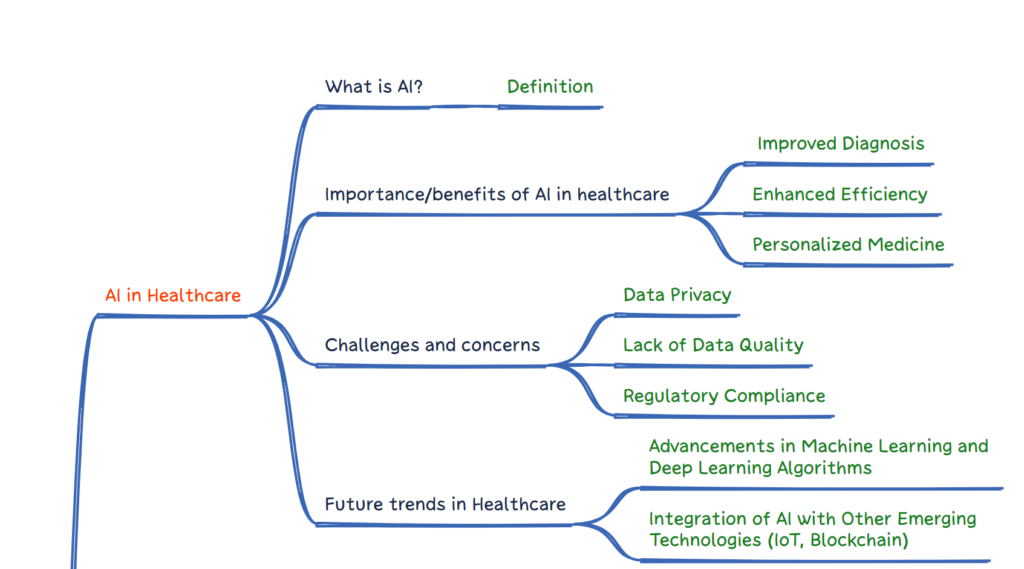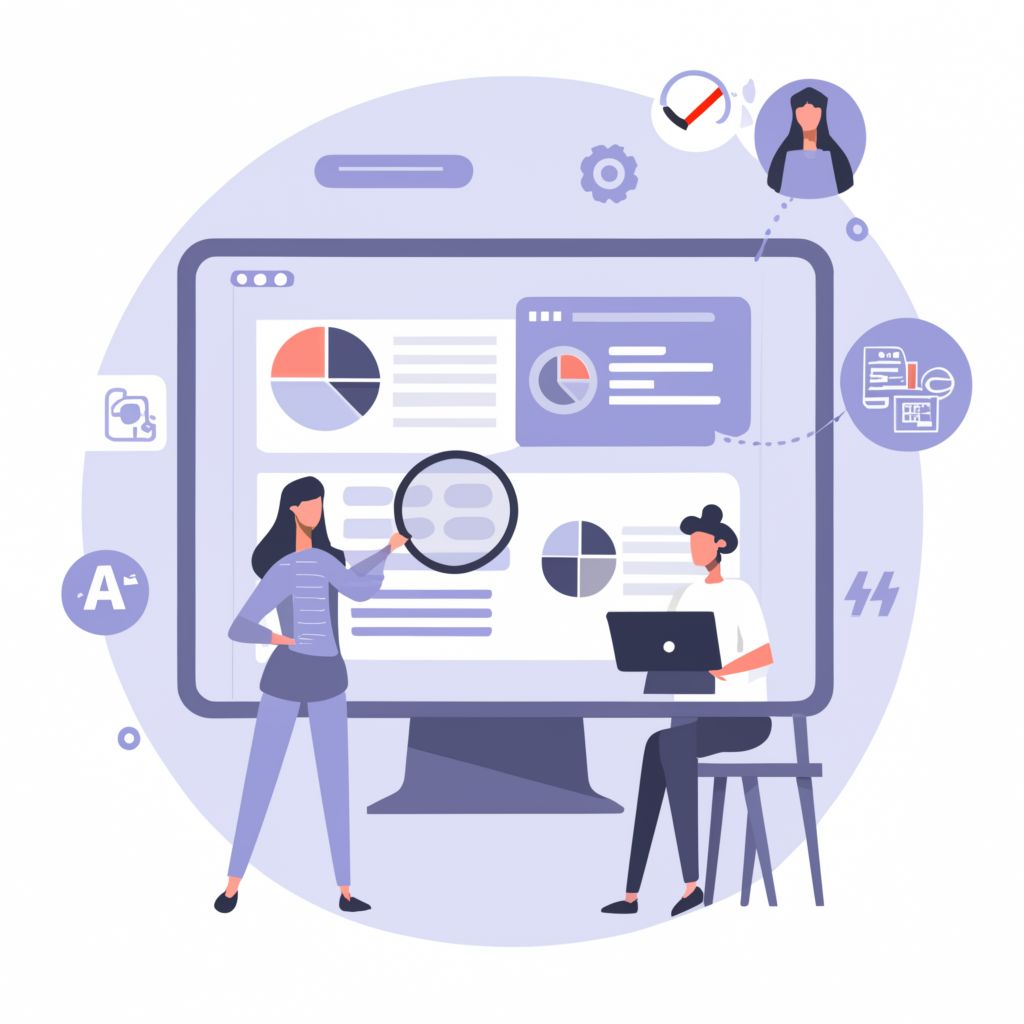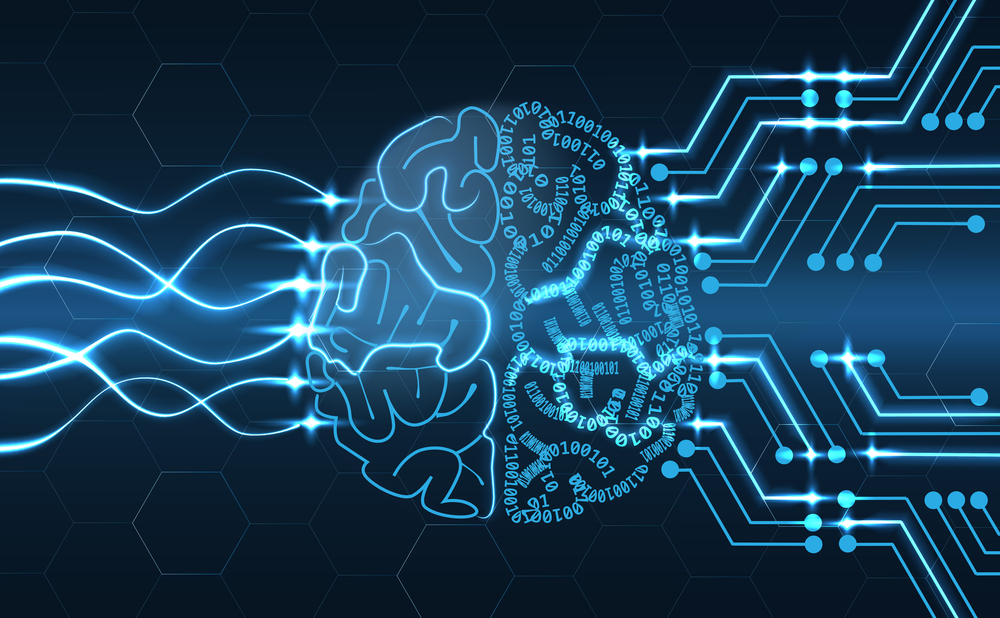
What is AI?
AI stands for Artificial Intelligence and it is the capability of the machines to behave in intelligent ways. Artificial Intelligence (AI) is the process of making machines mimic human cognition abilities through the use of computer systems. It is building of the algorithms which can be processed by computers for performing tasks associated with intelligence that include learning, reasoning, problem-solving, perception and decision making.AI in Healthcare could make healthcare professionals smarter, put a better quality of care in a patient’s life and improve operational efficiencies in different healthcare settings.

This can encompass a wide range of capabilities, including:
Learning and problem-solving: AI systems may learn from data and experience, which can then be utilized to identify a solution and make a decision. Here is where you learn something from the scratch including what you have learnt earlier to fit into new circumstances.
Reasoning and deduction: AI systems input data as an input, then analyzes information with a formation of conclusion and logic. The other advantage is the ability to identify and pull up links and patterns existing in the data even the humans would not notice.
Perception and understanding: AI systems are capable of understanding the information from the environment using sensors (e.g., cameras, microphones) and presenting the semantics of the information. This involves such things like dialogs, comprehension, naming objects and images, and reading emotions.
Planning and decision-making: AI systems may define the objectives, produce a path to them and act as a decision-maker in complicated conditions. This can be varied according to several factors, such as weighing different options, assessing the positives and negatives and adapting new situations.
This fact should be borne in mind that AI is a broad perspective and its components cover numerous kinds of AI which deal differently with given task. In the process of exploring AI in healthcare, knowing its usage, advantages, challenges, and trends will be important. This is the direction to look into in order to discover the transformative power of AI in the healthcare landscape.
AI in Healthcare: Revolutionizing Patient Care
In today’s fast-paced world, technology is constantly changing, and the healthcare industry is one of the most changing areas. Efforts to transform healthcare are being led by artificial intelligence (AI), which is transforming healthcare with transformative benefits.
Improved Diagnosis:

A great advantage of AI in the healthcare sector is its ability to improve diagnoses. Picture a situation where a patient comes with a symptom which is a little bit vague and the doctors are at the verge of making a correct diagnosis. AI in healthcare does wonders by looking at the extensive patient data including medical records, lab results, and imaging scans. AI, through smart algorithms, may detect relations and patterns that human medical professionals might not notice right away. This may result in the early detection of diseases, the precise diagnosis of diseases, and the ultimate success in treatment for patients.
AI in Healthcare for Enhanced Efficiency:
Aside from making diagnosis better, AI also plays a role in increasing the efficiency of health systems. Originally, healthcare workers spending a lot of time on administrative tasks like paperwork, scheduling, and data entry was a reality. AI- equipped tools has the ability to automate these routine tasks giving the health care providers much more time to care for the patients.AI also helps hospitals manage inventory, better allocate resources, and streamline operations—all while reducing costs and increasing efficiency.AI enables healthcare organizations to cut costs and deliver quality of care by increasing process efficiency and reducing inefficiencies while saving time and money.
Personalized Medicine:
Another benefit of AI in healthcare is its potential to provide personalized medicine. With their own distinct DNA, way of life, and medical background, each person is unique. Conventional, outdated, one-size-fits-all therapies don’t always function successfully. AI aids in guiding the decision-making process by taking into account the particular demands and traits of each patient. Artificial intelligence (AI) can identify the best courses of action by evaluating patient data to identify the most suitable medications, doses, and actions. This method, known as “precision medicine,” can enhance patient happiness, lessen adverse effects, and boost the efficacy of therapy.
In the end, AI is revolutionizing healthcare by making tailored treatment and quicker diagnostics. The potential of AI in healthcare is limitless for the future as the technology evolves, leading to better and more efficient healthcare.
AI in Healthcare: Addressing Challenges and Concerns

One of the most important challenges facing AI in healthcare is data storage. Health care providers handle a wealth of sensitive patient data, including medical records, lab results, and photographs. However, in order to preserve patient confidence and comply with regulations such as HIPAA (Health Insurance Portability and Accountability Act) , the confidentiality and security of this information must be considered first.
Healthcare organizations must have strong data privacy measures such as encryption, access control and anonymity in place to ensure that patient data is not misused or accessed by unauthorized persons and transparent communications with patients about how their data will be used in AI applications.
Lack of Data Quality while using AI in Healthcare :

The other critical AI in healthcare issue is the absence of data quality. AI algorithms need high-quality data for both training and evaluation. Nevertheless, healthcare data can be incomplete, inaccurate, or biased, which may prevent AI systems from making informed decisions and possibly cause harmful consequences if the issue is not adequately addressed.
Therefore, healthcare organizations should concentrate on data quality improvement initiatives in order to reduce this challenge, which include data cleaning, normalization and data standardization. Additionally through application of advanced analytics techniques, that include outlier detection and anomaly detection, can help to identify and solve data quality issues before any AI application is impacted. Through guaranteeing the well-being of health data, organizations are able to advance the accuracy and reliability of AI-based solutions.
Regulatory Compliance for AI in Healthcare:
Another serious issue is that implementing AI in healthcare is complicated by the regulatory framework. Healthcare organizations must federally comply with privacy, safety, and approval regulations regarding data, patients, and medical devices. For Example, AI-based medical devices must be evaluated and approved by regulatory authorities such as FDA (Food and Drug Administration) prior to clinical usage.
Compliance with the regulations involves initiation of meticulous planning, documentation and coordination among healthcare providers, technology vendors and regulatory authorities. It is important for organizations to carry out risk assessments, build quality management systems, and keep accurate records to show compliance with their regulatory obligations. Through proactive identification of regulatory requirements health organization are able to mitigate legal and financial risks introduced by the AI implementation and encourage a safety and accountability culture.
In summary, AI in healthcare holds the power to remodel the system, but it also has challenges and concerns that need to be taken into consideration for the full benefit to be realized. Through ensuring data security, data integrity, and regulatory compliance, healthcare organizations can minimize risks and get the best from Artificial Intelligence for patient care and outcomes optimization. Through the process of strategizing, cooperation, and following of the best practices, AI in healthcare has the ability to reinvent services and transform the lives of patients across the globe.
The Future of AI in Healthcare: Emerging Trends

With AI technology evolving at an amazingly fast pace, the future of healthcare is defined by emerging AI innovations. Offering the possibility to revolutionize patient care, AI may become the driver of major changes, not only in the way healthcare is delivered but also in the way it is experienced by the patient. The two main trends influencing the healthcare of the future comprise the progress in machine learning and deep learning algorithms, as well as AI integration with other innovative technologies such as the IoT and blockchain.
Advancements in Machine Learning and Deep Learning Algorithms:
Machine learning and deep learning algorithms are the cutting-edge parts of AI in healthcare. These algorithms allow the computers to process large data sets, detect patterns, and even make suggestions or predictions without explicit software. Medical field could benefit from machine learning and deep learning algorithms in terms of patient care, starting with diagnosis, treatment to personalized medicine and population health management.
For instance, researchers are working on computer algorithms that can analyze medical images including X-rays, MRIs and CT scans to help radiologists in spotting and diagnosing diseases e.g. cancer, cardiovascular conditions and neurological conditions. Through the application of machine learning and deep learning approaches, these algorithms can improve diagnosis accuracy, minimize interpretation mistakes, and ultimately improve patient outcomes.
Also, machine learning algorithms can analyze the electronic health records (EHRs), genomic data, and other clinical data sources in order to identify patterns, forecast disease progression, and improve the treatment plans. This provides healthcare providers with an opportunity to provide more personalized and targeted interventions, fully customized to individual patient’s physical traits and peculiarities.
Integration of AI with Other Emerging Technologies (IoT, Blockchain):
In addition to advances in machine learning and deep learning algorithms, the integration of AI with other emerging technologies is poised to further transform healthcare with two notable examples being the Internet of Things (IoT) and blockchain.
It refers to the interconnected devices, sensors, and systems that collect and exchange data over the Internet. IoT devices in healthcare can collect real-time patient data, such as vital signs, activity levels, and medication adherence to enable remote monitoring, early intervention and screening predict Healthcare providers combining AI and IoT to analyze data leaks from IoT devices, detect anomalies, and communicate potential health risks or emergencies to care teams Control and can be equipped with devices that have used a learning curve
In other words, blockchain technology provides a secure and transparent way for multiple parties to record and share data. In the healthcare industry, blockchain can be used to collect and access sensitive patient data, such as medical records, conscientious objectors, billing accounts, for detailed analysis and decisions for decision algori Taking the benefit of restraint of the patient You can ensure integrity, confidentiality and security
Conclusion
With the promise of AI in Healthcare, the future of healthcare is bright. Advances in machine learning and deep learning algorithms, combined with AI integrated with new emerging technologies such as IoT and blockchain are driving innovation and transformation across the healthcare industry Harnessing the power of AI to improve patient outcomes, increase operational efficiency. We will be covering the role of AI in medical coding in future posts and you can check out What Do Medical Coders Do?


